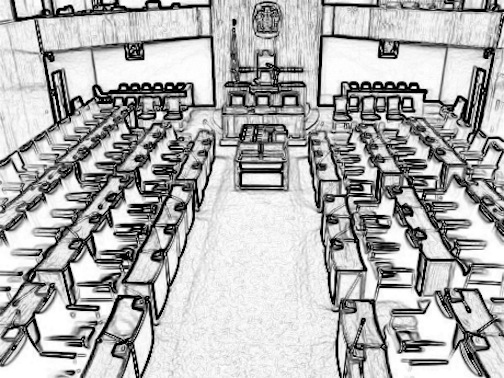By David Rowe
Op-Ed Contributor
A recent article in the Jamaica Gleaner reported on what seemed to be a major dispute within the Jamaica Labor Party.
This development has fundamental implications for Jamaica’s Westminster parliamentary democracy and Jamaica’s political future.
The Gleaner article uses the local expression “bangarang” to define the situation.
The current problem seems to concern disaffection with the current senior leadership of the JLP by its rank and file members.
This takes us back to 1974, when Edward Seaga opposed and overtook Hugh Shearer as leader of the party after Shearer had lost the 1972 General Elections. Or 2005, when Bruce Golding became leader of the JLP and, in 2011, Andrew Holness became the party’s leader.
For many, the octogenarian Seaga remains the most respected and most powerful member of the party; most still look to him for his fearlessness, analysis and economic insight.
Golding never seemed to inspire the confidence or assurance that Seaga did, and, following the aftermath of the Extradition Crisis, Andrew Holness replaced him.
Some academics believe that the JLP may not outlive Seaga. The party has so many cliques and factions, not all of which appear to be on the same page. There are Bustamante Labourites, Seaga Labourites, Golding Labourites, and G2K members, to name a few.
There have been five JLP leaders since Sir Alexander Bustamante. But, as the Gleaner pointed out, democratic processes have not generally defined the JLP’s party leadership choices. That has not typically been the case with the People’s National Party.
Theoretically, any qualified member of the JLP ranks can challenge for leadership and, indeed, there are members of the JLP and the Senate who are considered by many to be potential future leaders of the party if the party is to survive its current upheaval. But Internal dissension cannot further the cause of the JLP going forward.
A new leader alone will not give the party a new ethos, a new image or a new energy.
As is the case across Jamaica’s political spectrum, the JLP must become more transparent in keeping with the technological age.
And democracy must be at the core of any rebirth.
David P Rowe is an attorney in Jamaica and Florida and an adjunct law professor at the University of Miami School of Law in Coral Gables, Fla.
Note: the opinions expressed in Caribbean Journal Op-Eds are those of the author and do not necessarily reflect the views of the Caribbean Journal.
